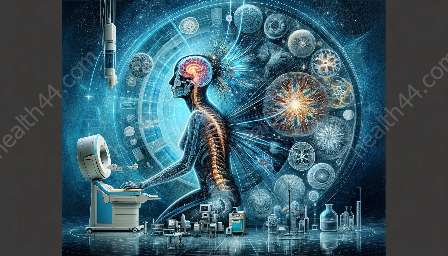Radiologic technologists play a crucial role in the healthcare industry, utilizing advanced imaging technologies to diagnose and treat various medical conditions. However, apart from technical expertise, the profession also demands exceptional patient care and communication skills. This article extensively discusses the significance of these skills, their integration into radiologic technologist education and training, and their impact on the field of radiology.
Understanding the Role of a Radiologic Technologist
A radiologic technologist, also known as a radiographer or X-ray technologist, is responsible for performing diagnostic imaging examinations on patients. These professionals operate an array of medical imaging equipment, including X-ray machines, computed tomography (CT) scanners, and magnetic resonance imaging (MRI) machines, to create images of internal organs, bones, and tissues for diagnostic purposes.
The Importance of Patient Care Skills
Patient care is an integral aspect of a radiologic technologist's job. When patients undergo imaging procedures, they are often anxious or in pain, and it is the technologist's responsibility to ensure their comfort and well-being throughout the process. Developing strong patient care skills allows radiologic technologists to connect with their patients, ease their concerns, and create a positive and supportive environment during the imaging procedure.
Effective patient care skills enable radiologic technologists to:
- Communicate clearly and compassionately with patients to alleviate anxiety and earn trust
- Provide emotional support and reassurance to patients, particularly during invasive or uncomfortable procedures
- Accurately assess patients' conditions and needs, allowing for personalized care and attention
- Ensure patient safety and privacy throughout the imaging process
The Role of Communication Skills in Radiologic Technologist Profession
Excellent communication skills are essential for radiologic technologists to effectively interact with patients, as well as other healthcare professionals. As part of their daily duties, radiologic technologists must:
- Explain imaging procedures to patients, addressing any concerns or questions they might have
- Collaborate with radiologists and other medical personnel to ensure accurate imaging results and diagnoses
- Convey critical information regarding patients' conditions and imaging findings effectively
- Document patient information accurately to support the continuity of care
Integration into Radiologic Technologist Education and Training
Recognizing the pivotal importance of patient care and communication skills, radiologic technologist education and training programs incorporate comprehensive curricula to develop these skills in aspiring professionals. These programs focus on:
- Empathy and sensitivity training to teach students how to respond effectively to patient emotions and concerns
- Interactive communication workshops to hone the ability to communicate complex medical information in a clear and understandable manner
- Hands-on clinical experiences that provide opportunities to practice patient interactions under the guidance of experienced professionals
- Ethical training to foster a strong understanding of confidentiality, patient rights, and professional boundaries
- Enhanced patient satisfaction and experience, leading to better compliance with imaging procedures and improved outcomes
- Development of a trusting relationship between patients and healthcare providers, which is crucial for accurate diagnosis and treatment planning
- Reduced patient anxiety and stress, promoting a more positive healthcare experience
- Improved coordination and collaboration among healthcare teams, leading to more efficient and accurate patient care
The Impact on the Field of Radiology
The integration of patient care and communication skills into the radiologic technologist profession has far-reaching implications for the field of radiology. Radiologic technologists who exhibit strong patient care and communication skills contribute to:
Conclusion
As the field of radiology continues to evolve, the significance of patient care and communication skills in the radiologic technologist profession cannot be overstated. These skills are indispensable for fostering positive patient experiences, ensuring accurate diagnoses, and promoting overall healthcare excellence. By prioritizing the development of these skills in education and training, radiologic technologists are poised to make a lasting impact on patient care and well-being.


